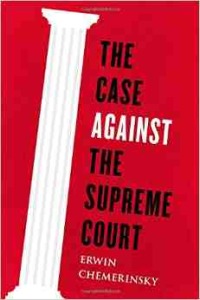Quozl by Alan Dean Foster
 Friday, January 30, 2015 at 8:17AM
Friday, January 30, 2015 at 8:17AM 
First published in 1989; published digitally by Open Road Media on November 4, 2014
If you are tired of stories in which aliens look like lizards and are intent on killing as many humans as possible, Quozl is for you. The Open Road edition of Alan Dean Foster's 1989 novel contains a brief biography of Foster and several pictures of the talented author.
Quozlene has become overpopulated due to the ravenous sexual appetites of the Quozl. Population was once controlled by war but, in more civilized times, peaceful but desperate Quozl have joined settlement ships that voyage to the stars in the hope of finding a habitable planet. It is a one-way trip; failure means death.
Looks-at-Charts is a scout on a ship that is reaching its destination, the planet they have named Shiraz, after a six generation journey. Shiraz turns out to be inhabited by a population at war and so, of course, you can guess what planet that is. The Quozl burrow into the hills of Idaho, confident that they will remain undiscovered. First contact does not go well for the Quozl, who are unprepared for the wholly uncivilized greeting they receive. Second contact is a vast improvement, although only one human and one Quozl know about it. Contacts continue and are eventually expanded, although the existence of the Quozl is concealed from the world at large for most of the novel. About two-thirds of the way into the novel, the story takes an amusing turn.
Creating aliens and alien environments is Alan Dean Foster's strength. He gives the Quozl a richly imagined culture. For example, ritual challenges combine a form of martial arts dance (draw blood, you lose) with verbal jousting; eloquent insults contribute to a winning performance. Social encounters demand extravagant forms of politeness and self-effacement at risk of losing status. The Quozl happily indulge in uninhibited sex several times a day with varying partners. In fact, as the Quozl study humans from their hidden colony, they quickly realize the cause of all human strife: humans just don't have enough sex!
In other respects, as well, Foster uses the Quozl observation of humans to illuminate human absurdity. Just as one culture on Earth often views another culture as bizarre, the Quozl regard human behavior on the whole as puzzling, if not insane. Foster has great fun with those observations while making some telling points.
The manner in which the Quozl are eventually revealed to humans is clever, original, and very funny. While the final chapters might be a little too expository, they are satisfying. The ending contains a final twist that is true to Quozl nature.
Quozl is a gentle, charming novel that is nevertheless meaningful. Trust is its central theme. Trust between civilizations begins with one person trusting another -- or, in the case of First Contact, with one human and one alien trusting each other. That's a refreshing change from lizard aliens and humans trying to kill each other. Perhaps another moral is the novel's reminder that appearance is important to perception. Cute and cuddly Quozl are easier to befriend than lizard aliens would be, but their nonthreatening appearance also makes it easy for Quozl to get what they want from humans. Alien lizards, no matter how friendly, would never have that same advantage.
RECOMMENDED



